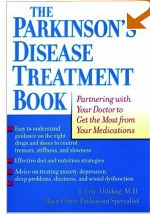Parkinson's Disease: Complete Medical Guide
Understanding symptoms, causes, and evidence-based nutritional support for this neurological condition

🩺 Critical Medical Information
Parkinson's Disease is a serious neurological condition requiring comprehensive medical management. This information is for educational purposes only and should never replace professional medical care.
Always consult qualified healthcare practitioners before starting any treatment protocol, nutritional supplementation, or making changes to existing medications.
📊 Disease Impact
An estimated 1.5 million Americans are currently suffering from Parkinson's Disease, making it one of the most common neurodegenerative disorders. Early intervention and proper medical management can significantly improve quality of life and slow disease progression.
Understanding Parkinson's Disease
What Causes Parkinson's?
Neurological Mechanism
Parkinson's Disease is caused by the progressive loss of brain cells that produce a crucial chemical messenger called dopamine.
Dopamine's Role:
- • Controls smooth, coordinated muscle movements
- • Regulates balance and coordination
- • Essential for motor function control
- • Affects mood and cognitive function
Disease Progression
Progressive Nature
As dopamine-producing brain cells continue to die, symptoms gradually worsen over time, affecting movement, balance, and eventually daily activities.
Important: Early detection and proper medical management can significantly slow progression and improve quality of life for many patients.
Symptoms & Clinical Presentation
Primary Motor Symptoms
Tremor
- • Trembling in hands and arms
- • Leg tremors
- • Jaw and facial trembling
- • Often starts on one side
- • Most noticeable at rest
Rigidity & Stiffness
- • Limb stiffness
- • Trunk rigidity
- • Muscle tension
- • Reduced flexibility
- • Pain and discomfort
Movement Difficulties
- • Slow movement (bradykinesia)
- • Difficulty initiating movement
- • Reduced arm swing when walking
- • Shuffling gait
- • Freezing episodes
Balance & Coordination
- • Loss of balance
- • Coordination problems
- • Postural instability
- • Falls risk increased
- • Difficulty with fine motor tasks
Progressive Impact on Daily Life
Walking
Progressive difficulty with mobility and gait
Talking
Speech becomes softer and less clear
Daily Tasks
Simple activities become challenging
Evidence-Based Nutritional Support
Medical Consultation Required: All nutritional supplements and dosages must be discussed with your healthcare provider before implementation.

Coenzyme Q10 (CoQ10)
University of California, San Diego Research: Groundbreaking study demonstrating CoQ10's potential in Parkinson's Disease management.
How CoQ10 Works
- • Activates specific enzymes in mitochondria
- • Produces ATP (primary cellular energy)
- • Provides antioxidant protection
- • Neutralizes free radicals from ATP production
Research Findings
- • Parkinson's patients had lower CoQ10 levels
- • Suggests diminished brain ATP production
- • CoQ10 supplements slowed functional decline
- • Most effective in early-stage Parkinson's
Typical Dosage Range: 30mg to 200mg per day (Must be discussed with your doctor)
N-Acetyl-L-Cysteine (NAC)
Mechanism of Action
- Precursor to glutathione - major antioxidant
- Key detoxifying agent in the liver
- Protects brain cells from oxidative stress
- Levels may drop with age
Research Implications
Oxidative Stress Connection: Research suggests that declining NAC levels with age could lead to increased oxidative stress within brain cells.
Neurodegenerative Link: Oxidative stress is a conspicuous suspect in neurodegenerative disorders including Alzheimer's and Parkinson's Disease.
Health Practitioner Recommendations: 250mg to 750mg daily (Professional guidance required)
Beverages & Lifestyle Support
Tea Research: Significant Protection
Singapore Study Results
Study Details:
- • Published in American Journal of Epidemiology
- • Over 60,000 Chinese men and women studied
- • Long-term epidemiological research
- • Controlled for multiple variables
Remarkable Findings:
71%
Decrease in Parkinson's risk
¾ cup black tea, 23 times monthly
Tea Chemistry Expert Insight
Dr. Ann Walker, England's Tea Advisory Panel: "The key difference between black and green tea lies in the types and amounts of flavonoids."
Black tea advantage: Contains more complex varieties of flavonoids called thearubigins and theaflavins, which may provide superior neuroprotection.
Coffee & Caffeine: Harvard Research
Expert Research Statement
Alberto Ascherio, Harvard School of Public Health: "There is fairly convincing evidence that people who drink coffee or consume caffeine regularly have a lower risk of developing Parkinson's disease."
Animal Studies: Mice given caffeine equivalent to moderate human coffee consumption lost fewer dopaminergic neurons when exposed to Parkinson's-inducing chemicals.
Meta-Analysis Results
30%
Lower Parkinson's Risk
Regular coffee drinkers vs. non-drinkers
- • 13 studies pooled in meta-analysis
- • Regular coffee protective (not decaf)
- • Modest amounts effective: 1-2 cups daily
- • Published in Ann. Neurol. 52: 276, 2002
Important Research Limitation
Gender-Specific Finding: In Ascherio's study, women taking post-menopausal hormones did not benefit from coffee's protective effects. This suggests hormonal interactions may modify caffeine's neuroprotective properties.
Practical Beverage Guidelines
Black Tea
¾ cup, 23 times monthly minimum for 71% risk reduction
Regular Coffee
1-2 cups daily for 30% risk reduction (not decaf)
Special Consideration
Post-menopausal women on hormones may not benefit from caffeine